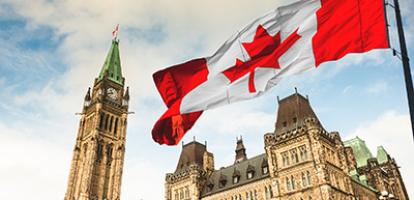Published in TVO Today.
Ontario's upcoming fall economic statement presents the Ford government with an opportunity for strategic policy announcements ahead of a possible 2025 election. Traditionally an update on the province’s fiscal outlook, this year’s FES is likely to be shaped more than usual by political considerations — for example, the government plans to issue a $200 cheque to every Ontarian.
The Ford administration faces a delicate balancing act: introducing new initiatives while keeping an eye on provincial finances amid economic uncertainties. At a minimum, the FES offers insight into the government’s fiscal outlook and reports on key policy priorities. It should also tell us whether the province is focused on tackling urgent issues or on a potential early election. Here are some reflections on the government’s stated priorities — and a few neglected areas that need urgent attention.
Healthcare
The Ontario government has ramped up health-care spending with new planned investments in workforce development and primary-care teams, including a new medical school at York University focused on family medicine. Meaningful progress remains elusive. Health Quality Ontario data show that around 11 percent of Ontario families are still without a primary-care provider, up from 10 percent earlier in the year. While emergency-room wait times declined in early 2024, those gains have not been sustained, and wait times are still above pre-pandemic levels.
Housing
Housing remains high on the provincial agenda, with a goal to add 1.5 million new homes by 2031. The government demonstrated useful transparency in outlining municipal housing targets for 2023 and 2024 and aggregate targets through to 2031. While the target was largely achieved in 2023, performance lags this year. Housing starts in the first half of the year were down 16 percent. By August, only 61,000 units had been added, far short of the pace needed to meet the 125,000-unit annual target. The odds of meeting this year’s goal, let alone achieving 1.5 million homes by 2031, are increasingly remote.
Infrastructure
Infrastructure remains a central pillar of the Ford administration — the 2024 budget committed $190.2 billion over 10 years to an array of projects. However, the province’s delivery record on major initiatives remains patchy. Progress and completion timelines for significant projects would be much more interesting than splashy investment-intention figures, considering the number of delivery-plagued high-profile projects. The Ontario Infrastructure Bank, now rebranded as the Building Ontario Fund, has made some progress since its inception a year ago; its CEO was announced in mid-October. With no major projects yet funded — and no clarity on the investment framework or how that will protect taxpayer interests — more concrete action is overdue.
Skilled trades
In the 2024 budget, the government reported that more than 500,000 skilled-trades workers had been trained through nearly 600 projects. New funding commitments of $100 million to the Skills Development Fund and $62 million to foundational trades programs are welcome. Still, stronger reporting on program registrations, completions, and job vacancies is called for, particularly in sectors like housing and infrastructure.
EVs and critical minerals
Ontario’s push for industrial growth in electric vehicles and critical minerals faces increasing challenges. Consumer adoption of EVs remains slow, hampered by infrastructure gaps and affordability issues. Major projects have stalled, including Umicore's postponed battery facility and Ford's delayed EV production in Oakville. With key commitments toward Ontario’s EV ecosystem faltering, the province may need to reconsider its approach.
Cost-of-living relief
The Ford government has made cost-of-living relief a signature strategy, eliminating vehicle-registration fees and capping electricity prices. Yet such measures have come at a steep cost — $7.3 billion for energy-price relief in 2024-25 alone. With inflation cooling, it is time for a shift in focus. With household incomes finally pulling ahead (and a deficit approaching $10 billion), this is not the time for broad-based transfers to households that would come at an enormous cost to the provincial treasury.
The “temporary” gasoline tax cut, initially introduced in mid-2022, extended several times, and scheduled to end at the end of the year, has received for another extension — a likely political move ahead of the FES. A worthwhile question to ask: Under what conditions would it be cancelled?
Policy gaps
Despite policy advancements, critical issues continue to be overlooked. Recipients have seen no increase in Ontario Works rates for six years, although the cost of living has risen by 22 percent for those at the poverty line. Food-bank usage is at record highs, and homelessness is rising. The government has options to address this growing crisis, from indexing welfare benefits to raising the earned-income threshold for OW recipients, yet no action has been forthcoming.
Postsecondary education
Higher education, once a key strength for Ontario, is now under threat. Government funding increases fall far short of levels recommended by the province’s own blue-ribbon panel. With international student enrolment newly limited by the federal government, financial pressures are growing. In an era of technological transformation, this underinvestment could undermine Ontario’s future economic competitiveness.
Climate change
Ontario’s climate policies remain vague. The province has no clear plan for meeting emission-reduction targets, and it’s lagging on climate adaptation. A recent report outlined the future economic costs of climate inaction, including damage to infrastructure and public health risks. The Financial Accountability Office suggests there are significant long-term savings to be had from investing in resilient infrastructure now. But action remains conspicuously absent.
Conclusion
As the Ford government prepares for a potentially pivotal election year, the 2024 fall economic statement offers a chance to reset and refocus. With key issues like housing, health care, and industrial policy faltering, the time may be ripe for a sharper, more coherent strategy focusing on other urgent issues. Whether the government is interested in meeting these challenges head-on remains to be seen.
Brian Lewis is a senior fellow at the C.D. Howe Institute and the Munk School of Global Affairs and Public Policy and former Chief Economist for Ontario.





